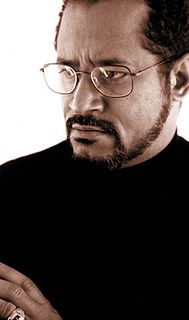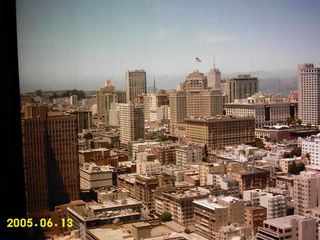Poor Nations Are Littered With Old PC's, Report Says
October 24, 2005
Poor Nations Are Littered With Old PC's, Report Says
By LAURIE J. FLYNN
Much of the used computer equipment sent from the United States to developing countries for use in homes, schools and businesses is often neither usable nor repairable, creating enormous environmental problems in some of the world's poorest places, according to a report to be issued today by an environmental organization.
The report, titled "The Digital Dump: Exporting Reuse and Abuse to Africa," says that the unusable equipment is being donated or sold to developing nations by recycling businesses in the United States as a way to dodge the expense of having to recycle it properly. While the report, written by the Basel Action Network, based in Seattle, focuses on Nigeria, in western Africa, it says the situation is similar throughout much of the developing world.
"Too often, justifications of 'building bridges over the digital divide' are used as excuses to obscure and ignore the fact that these bridges double as toxic waste pipelines," says the report. As a result, Nigeria and other developing nations are carrying a disproportionate burden of the world's toxic waste from technology products, according to Jim Puckett, coordinator of the group.
According to the National Safety Council, more than 63 million computers in the United States will become obsolete in 2005. An average computer monitor can contain as much as eight pounds of lead, along with plastics laden with flame retardants and cadmium, all of which can be harmful to the environment and to humans.
In 2002, the Basel Action Network was co-author of a report that said 50 percent to 80 percent of electronics waste collected for recycling in the United States was being disassembled and recycled under largely unregulated, unhealthy conditions in China, India, Pakistan and other developing countries. The new report contends that Americans may be lulled into thinking their old computers are being put to good use.
At the Nigerian port of Lagos, the new report says, an estimated 500 containers of used electronic equipment enter the country each month, each one carrying about 800 computers, for a total of about 400,000 used computers a month. The majority of the equipment arriving in Lagos, the report says, is unusable and neither economically repairable or resalable. "Nigerians are telling us they are getting as much as 75 percent junk that is not repairable," Mr. Puckett said. He said that Nigeria, like most developing countries, could only accommodate functioning used equipment.
The environmental group visited Lagos, where it found that despite growing technology industries, the country lacked an infrastructure for electronics recycling. This means that the imported equipment often ends up in landfills, where toxins in the equipment can pollute the groundwater and create unhealthy conditions.
Mr. Puckett said the group had identified 30 recyclers in the United States who had agreed not to export electronic waste to developing countries. "We are trying to get it to be common practice that you have to test what you send and label it," he said.
Mr. Puckett also said his group was trying to enforce the Basel Convention, a United Nations treaty intended to limit the trade of hazardous waste. The United States is the only developed country that has not ratified the treaty.
Much of the equipment being shipped to Africa and other developing areas is from recyclers in the United States, who typically get the used equipment free from businesses, government agencies and communities and ship it abroad for repair, sale or to be dismantled using low-cost labor.
Scrap Computers, a recycler in Phoenix, has eight warehouses across the United States to store collected electronics before they are shipped to foreign destinations, and Graham Wollaston, the company's president, says he is opening new warehouses at the rate of one a month. Mr. Wollaston, who describes his company as a "giant sorting operation," said there was a reuse for virtually every component of old electronic devices: old televisions are turned into fish tanks for Malaysia, and a silicon glass shortage has created huge demand for old monitors, which are turned into new ones. "There's no such thing as a third-world landfill," Mr. Wollaston said. "If you were to put an old computer on the street, it would be taken apart for the parts."
Mr. Wollaston said the system was largely working, though he conceded that some recyclers dump useless equipment in various developing nations, most notably China. "One of the problems the industry faces is a lack of certification as to where it's all going," he said. He says his company tests all equipment destined for developing nations.
The Environmental Protection Agency concedes that "inappropriate practices" have occurred in the industry, but said it did not think the problem should be addressed by stopping all exports.
"E.P.A. has been working with the Organization for Economic Cooperation and Development countries for the last several years on development of a program that would provide much greater assurance that exports of recyclable materials will be environmentally sound," Tom Dunne, of the agency's Office of Solid Waste and Emergency Response, wrote in an e-mail message.

October 24, 2005
Poor Nations Are Littered With Old PC's, Report Says
By LAURIE J. FLYNN
Much of the used computer equipment sent from the United States to developing countries for use in homes, schools and businesses is often neither usable nor repairable, creating enormous environmental problems in some of the world's poorest places, according to a report to be issued today by an environmental organization.
The report, titled "The Digital Dump: Exporting Reuse and Abuse to Africa," says that the unusable equipment is being donated or sold to developing nations by recycling businesses in the United States as a way to dodge the expense of having to recycle it properly. While the report, written by the Basel Action Network, based in Seattle, focuses on Nigeria, in western Africa, it says the situation is similar throughout much of the developing world.
"Too often, justifications of 'building bridges over the digital divide' are used as excuses to obscure and ignore the fact that these bridges double as toxic waste pipelines," says the report. As a result, Nigeria and other developing nations are carrying a disproportionate burden of the world's toxic waste from technology products, according to Jim Puckett, coordinator of the group.
According to the National Safety Council, more than 63 million computers in the United States will become obsolete in 2005. An average computer monitor can contain as much as eight pounds of lead, along with plastics laden with flame retardants and cadmium, all of which can be harmful to the environment and to humans.
In 2002, the Basel Action Network was co-author of a report that said 50 percent to 80 percent of electronics waste collected for recycling in the United States was being disassembled and recycled under largely unregulated, unhealthy conditions in China, India, Pakistan and other developing countries. The new report contends that Americans may be lulled into thinking their old computers are being put to good use.
At the Nigerian port of Lagos, the new report says, an estimated 500 containers of used electronic equipment enter the country each month, each one carrying about 800 computers, for a total of about 400,000 used computers a month. The majority of the equipment arriving in Lagos, the report says, is unusable and neither economically repairable or resalable. "Nigerians are telling us they are getting as much as 75 percent junk that is not repairable," Mr. Puckett said. He said that Nigeria, like most developing countries, could only accommodate functioning used equipment.
The environmental group visited Lagos, where it found that despite growing technology industries, the country lacked an infrastructure for electronics recycling. This means that the imported equipment often ends up in landfills, where toxins in the equipment can pollute the groundwater and create unhealthy conditions.
Mr. Puckett said the group had identified 30 recyclers in the United States who had agreed not to export electronic waste to developing countries. "We are trying to get it to be common practice that you have to test what you send and label it," he said.
Mr. Puckett also said his group was trying to enforce the Basel Convention, a United Nations treaty intended to limit the trade of hazardous waste. The United States is the only developed country that has not ratified the treaty.
Much of the equipment being shipped to Africa and other developing areas is from recyclers in the United States, who typically get the used equipment free from businesses, government agencies and communities and ship it abroad for repair, sale or to be dismantled using low-cost labor.
Scrap Computers, a recycler in Phoenix, has eight warehouses across the United States to store collected electronics before they are shipped to foreign destinations, and Graham Wollaston, the company's president, says he is opening new warehouses at the rate of one a month. Mr. Wollaston, who describes his company as a "giant sorting operation," said there was a reuse for virtually every component of old electronic devices: old televisions are turned into fish tanks for Malaysia, and a silicon glass shortage has created huge demand for old monitors, which are turned into new ones. "There's no such thing as a third-world landfill," Mr. Wollaston said. "If you were to put an old computer on the street, it would be taken apart for the parts."
Mr. Wollaston said the system was largely working, though he conceded that some recyclers dump useless equipment in various developing nations, most notably China. "One of the problems the industry faces is a lack of certification as to where it's all going," he said. He says his company tests all equipment destined for developing nations.
The Environmental Protection Agency concedes that "inappropriate practices" have occurred in the industry, but said it did not think the problem should be addressed by stopping all exports.
"E.P.A. has been working with the Organization for Economic Cooperation and Development countries for the last several years on development of a program that would provide much greater assurance that exports of recyclable materials will be environmentally sound," Tom Dunne, of the agency's Office of Solid Waste and Emergency Response, wrote in an e-mail message.















